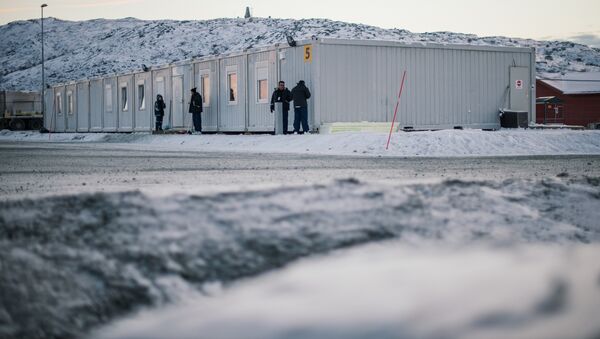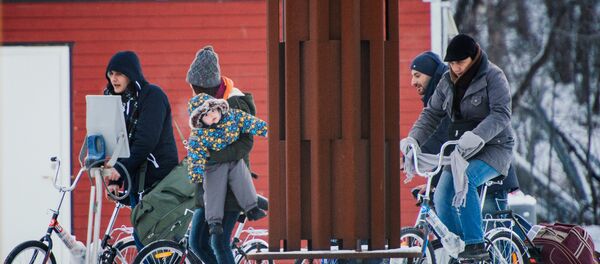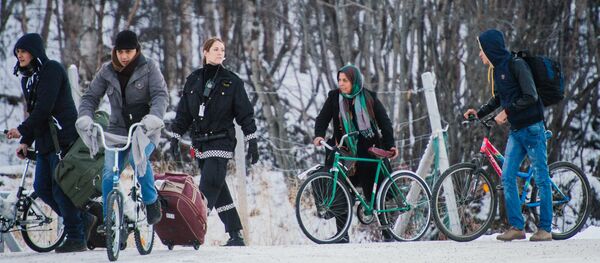According to the Norwegian newspaper Aftenposten, the country's migration police ejected a total of 371 asylum seekers from state-provided accommodation facilities in December, forcing them to cross the Arctic Circle into Russia in what came to be known as "Operation Winter."
The deportations came as a clear signal that Norway, which last year welcomed a total of 5,500 refugees via the so called Arctic route through northern Russia, did not want any more immigrants to arrive through its northern border. The flood of refugees has since then almost completely stopped, due to the tightening of border controls as well as cooperation with Russian state officials.
The rejected refugees claim to have been swindled. “Everything was secret. They deceived us. We knew nothing until we stood on the Russian border with the papers in our hands. We had not expected that of what we'd thought of as the best country in the world,” said Abdul Rahman Al Hessou, a Syrian refugee who now is in Saint Petersburg.
The refugees claim to have been deprived of their phones and were therefore unable to make contact with their lawyers, relatives or the media. The wireless networks in the Vestleiren refugee camp was allegedly switched off.
Some of the rejected asylum seekers say they were offered up to 20,000 Norwegian crowns (about $2,387) to abandon Norway and return to Russia.
Many of the rejected Syrians had also their passports stamped "expelled," making them appear as criminals upon return to Russia.
NOAS, The Norwegian Organisation for Asylum Seekers, confirmed, according to Aftenposten, that the police temporarily confiscated the refugees' mobile phones and valuables, which they only regained upon arrival at Kirkenes Refugee Camp. Furthermore, NOAS has notified the police of ten cases of unlawful detention in Vestleiren refugee camp.
The Norwegian police immigration unit (PU) rejects the criticism.
“PU aims to provide the best and most accurate information to those who have been rejected,” says PU’s communications manager Arild Strommen.
According to the police, it's standard procedure for asylum applicants to receive a rejection stamp in their passports and doesn't indicate that the bearer is a criminal.
Last year alone, Norway, a country of just over five million, took in over 32,000 refugees, mainly from the Middle East and Northern Africa.




